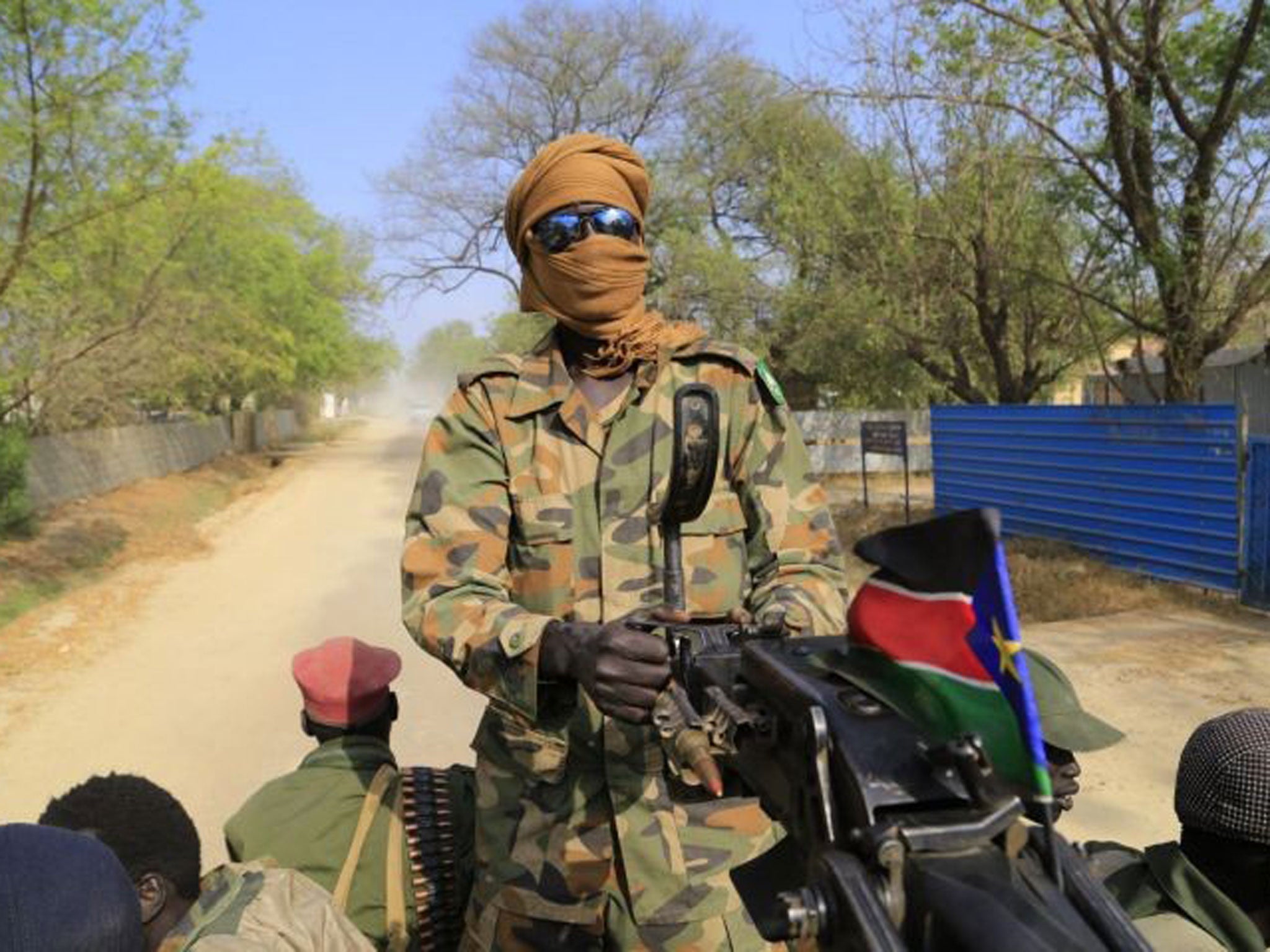South Sudan government ‘agrees ceasefire’ with rebels ahead of peace talks
Abrupt conflict has already claimed more than 1,000 lives and seen 180,000 displaced, UN says

Your support helps us to tell the story
From reproductive rights to climate change to Big Tech, The Independent is on the ground when the story is developing. Whether it's investigating the financials of Elon Musk's pro-Trump PAC or producing our latest documentary, 'The A Word', which shines a light on the American women fighting for reproductive rights, we know how important it is to parse out the facts from the messaging.
At such a critical moment in US history, we need reporters on the ground. Your donation allows us to keep sending journalists to speak to both sides of the story.
The Independent is trusted by Americans across the entire political spectrum. And unlike many other quality news outlets, we choose not to lock Americans out of our reporting and analysis with paywalls. We believe quality journalism should be available to everyone, paid for by those who can afford it.
Your support makes all the difference.The government of South Sudan and rebel leaders have reportedly agreed to a ceasefire ahead of peace talks in Ethiopia this afternoon.
A “cessation of hostilities” between the major warring factions has been announced, according to representatives from the IGAD organisation of six eastern African countries.
“President Salva Kiir Mayardit and Dr. Riek Machar agree on a cessation of hostilities and appoint negotiators to develop a monitored and implemented ceasefire,” read a statement from the bloc which includes the Ethiopian diplomats who have been central to mediation efforts.
Donald Booth, the US special envoy to South Sudan, confirmed that the two factions had agreed to attend imminent talks in the neighbouring country.
Mr Booth described the commitment from both sides as “a first but very important step to achieving a cessation of hostilities”.
Earlier, the rebel leader Machar told the BBC he would be willing to enter peace talks after his forces captured the key town of Bor.
South Sudan has been thrown into an abrupt and bloody civil war since 15 December when a skirmish between presidential guards escalated into violence throughout the country along ethnic lines.
The country has been plagued by ethnic tension and a power struggle within the ruling party since it became the world’s youngest independent state in July 2011.
The UN and other external analysts say the current dispute is political at its heart, but has since taken on ethnic overtones. The fighting has seen more than 1,000 people killed and up to 180,000 180,000, according to the UN.
Join our commenting forum
Join thought-provoking conversations, follow other Independent readers and see their replies
Comments